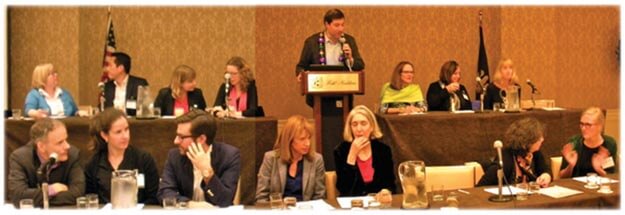 Our favorite panels at the writer events we attended this past year were those featuring agents and editors. This coverage, Part 4 of 4, is from the Agents & Editors panel at Words & Music: A Literary Feast in New Orleans, moderated by Folio Literary Management’s Jeff Kleinman.
Our favorite panels at the writer events we attended this past year were those featuring agents and editors. This coverage, Part 4 of 4, is from the Agents & Editors panel at Words & Music: A Literary Feast in New Orleans, moderated by Folio Literary Management’s Jeff Kleinman.
A brief bio of each agent/editor featured appears at the bottom of this post.
Jeff Kleinman: What services can agents provide that I (as an author) can’t do on my own? That is, what is the value-add that an agent can provide?
Brandi Bowles, Agent: Publishing on your own is like being an entrepreneur and starting a business on your own. Publishing the traditional route with an agent, editor and a mainstream publisher is like starting a business with marketing support, publicity support; it’s the difference between a one-man band and a symphony – you really need all those parts in place in order to be most successful.
April Eberhardt, Agent: I would say your agent is your strategist and your guide. With the authors I work with I have a plan A and plan B. Plan A is, let’s go with the traditional route for a period of time and if it doesn’t work we’ll self-publish, and it’s really true that self-publishing is anything but “self.” In order to make a really good book you need a team to do it.
Deborah Grosvenor, Agent: In traditional publishing the agent is your cheerleader, and your advocate and your career builder and your advisor and they’re really there and their interests are tied to your interests. We’re there through the life of the book and beyond, somebody there at your side.
Jill Marr, Agent: And your book will be of higher quality and will make more money!
Jeff Kleinman: I hear all the time that editors and publishers don’t do anything anymore and that publishers don’t market and rely on the authors to market. So the question is, what does the traditional publishing model have going for it that the indie models don’t?
Brenda Copeland, Editor: It’s great that people are trying to experiment, but what traditional publishing is able to do is provide a great deal of expertise in terms of making the book.
Ryan Doherty, Editor: Amazon has 25% of the retail space and so people should weigh that option and realize that we have the ability to get your book in all the bookstores and that’s what we do; we sell books. And if you’re published by us you can still be on Amazon – they carry our books but so do all the traditional book outlets, who may not carry Amazon titles.
Susannah Porter, Editor: I’m an editor at Random House and have been there most of my life. We have such fabulous support departments, in subsidiary rights, in marketing. To the point where we’ve gone out and found markets for books, whether horse stories or teen age girls; that’s the kind of success story Random House can offer.
Jeff Kleinman: So let’s hear more about the subsidiary rights process – Agents – discuss briefly, TV, film, foreign:
April Eberhardt, Agent: The subsidiary rights process is important. I use (subsidiary) agents to do it.
Christen Thompson, Editor: At History Press we have a lovely man named Jeff who handles them and yes, they can be very important.
Brandi Rivers, Agent: My job is to work with a book for film and television rights and to go back to why it’s important to have a literary publishing agent a lot of times I will find material that I fall in love with and that I know could be a film or television show and the author has unknowingly given their rights to a pubisher or to a news magazine. So I take their clients work to film and television companies like Warner Bros. or Sony and that’s the first step. And if those places fall in love with the material the same way I’ve fallen in love with the material then I take the material to actors or writers or directors and package the material.
In example, Brandi (Bowles) and I are working on a book that we both fell in love with and it was a tough seller on the publishing side. We put together a package of Shaun Levy who directed Night at the Museum and Josh Klausner who had written the Shrek screenplays and Josh has fallen so in love with it he’s writing the script on spec. We’re taking a book that would have been a $20,000 option maybe and now once we have this script by this very big writer and potentially a director who’s going to officially attach himself when he sees the script that’s a big sale. And it’s very important because then you have a movie and you’re not waiting for that development process.
Jeff Kleinman: So, agents, if you have an author who may want to retain certain rights – maybe they’re film rights – or audio – or ebook rights – would you take that author on?
April Eberhardt, Agent: Yes – I recently did a three book deal with an author who wanted to keep the merchandise rights. But I’m working with another author who wants to keep ebook rights and that’s going to be a harder sale because the editors won’t take a book w/out e-rights.
Christen Thompson, Editor: Correct. No ebook rights is a deal breaker.
The Panelists (Listed Alphabetically)
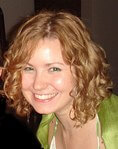 Brandi Bowles is an agent at Foundry Literary + Media, a full-service literary and media-development agency in New York. Brandi represents idea and platform-driven nonfiction in all categories, but she’s particularly interested in humor, narrative nonfiction, and big-idea books that change the way we think about the world. Some of her upcoming books include The Hollow Bone: Secrets From the Life of a Reiki Master, The Vice Lords: A History of Wayward Writers, and a memoir from Youtube sensation Ted Williams. Brandi also represents literary fiction, commercial fiction, women’s fiction, and YA, particularly novels that feature strong female bonds, and psychological or scientific themes.
Brandi Bowles is an agent at Foundry Literary + Media, a full-service literary and media-development agency in New York. Brandi represents idea and platform-driven nonfiction in all categories, but she’s particularly interested in humor, narrative nonfiction, and big-idea books that change the way we think about the world. Some of her upcoming books include The Hollow Bone: Secrets From the Life of a Reiki Master, The Vice Lords: A History of Wayward Writers, and a memoir from Youtube sensation Ted Williams. Brandi also represents literary fiction, commercial fiction, women’s fiction, and YA, particularly novels that feature strong female bonds, and psychological or scientific themes.
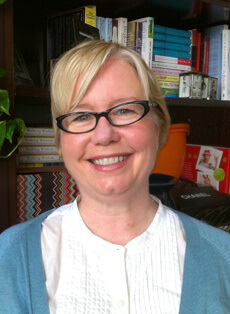 Brenda Copeland is an Executive Editor at St. Martin’s Press, where she has worked since 2010. Brenda publishes a vibrant mix of fiction and non-fiction, from the commercial to the literary, and looks for strong stories told with a strong voice. Current authors include Matthew Dicks, author of Memoirs of an Imaginary Friend, Ann Leary, author of The Good House, and Amy Sue Nathan, whose debut novel The Glass Wives will come out in summer, 2013. Over the course of her career Brenda has published such bestselling authors as Dean Koontz, Claire Cooke, Cecily Von Ziegesar, Melissa de la Cruz, as well as Gotham and Deepak Chopra. Brenda teaches book editing at New York University.
Brenda Copeland is an Executive Editor at St. Martin’s Press, where she has worked since 2010. Brenda publishes a vibrant mix of fiction and non-fiction, from the commercial to the literary, and looks for strong stories told with a strong voice. Current authors include Matthew Dicks, author of Memoirs of an Imaginary Friend, Ann Leary, author of The Good House, and Amy Sue Nathan, whose debut novel The Glass Wives will come out in summer, 2013. Over the course of her career Brenda has published such bestselling authors as Dean Koontz, Claire Cooke, Cecily Von Ziegesar, Melissa de la Cruz, as well as Gotham and Deepak Chopra. Brenda teaches book editing at New York University.
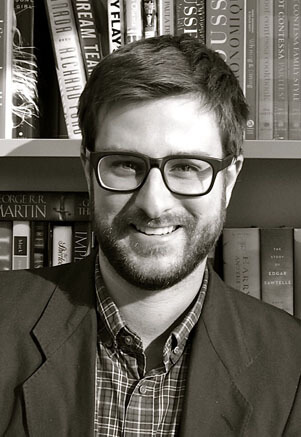 Ryan Doherty is a Senior Editor at Spiegel & Grau, an imprint of the Random House Publishing Group. He is interested in platform and voice driven narrative non-fiction. His eclectic interests in non-fiction include history, personal narrative, popular culture, science, food, music, blog trend titles, humor and biography.Other special interests include debut literary fiction. In the five-plus years that he has been at Random House, Ryan has edited a number of bestselling titles including Loon by Jack McLean, Life as I Blow It by Sarah Colonna, as well as the NBCC Award-winning memoir Half a Life by Darin Strauss. He also has acquired the forthcoming The Mushroom Hunters by Langdon Cook, an authorized biography of Jim Henson by Brian Jay Jones.
Ryan Doherty is a Senior Editor at Spiegel & Grau, an imprint of the Random House Publishing Group. He is interested in platform and voice driven narrative non-fiction. His eclectic interests in non-fiction include history, personal narrative, popular culture, science, food, music, blog trend titles, humor and biography.Other special interests include debut literary fiction. In the five-plus years that he has been at Random House, Ryan has edited a number of bestselling titles including Loon by Jack McLean, Life as I Blow It by Sarah Colonna, as well as the NBCC Award-winning memoir Half a Life by Darin Strauss. He also has acquired the forthcoming The Mushroom Hunters by Langdon Cook, an authorized biography of Jim Henson by Brian Jay Jones.
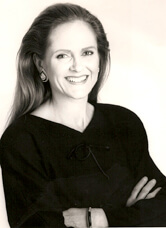 April Eberhardt, after 25 years as a corporate strategist and consultant, joined the literary world as head reader for Zoetrope: All-Story, a literary magazine, followed by five years as an agent with two San Francisco-based literary agencies. She represents clients worldwide, and divides her time between San Francisco, New York and Paris. A self-described “literary change agent,” April founded her own agency in order to assist and advise authors as they navigate the increasingly complex world of publishing.
April Eberhardt, after 25 years as a corporate strategist and consultant, joined the literary world as head reader for Zoetrope: All-Story, a literary magazine, followed by five years as an agent with two San Francisco-based literary agencies. She represents clients worldwide, and divides her time between San Francisco, New York and Paris. A self-described “literary change agent,” April founded her own agency in order to assist and advise authors as they navigate the increasingly complex world of publishing.
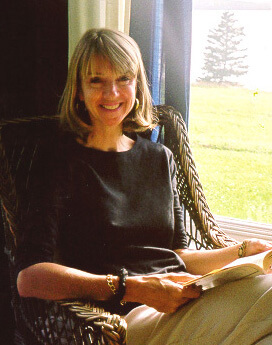 Deborah Grosvenor has worked in book publishing for more than 20 years as an editor and literary agent. During her career, Grosvenor has edited or represented several hundred fiction and nonfiction books in the areas of history, biography, politics, current affairs, memoir, the environment, the military, the South, and science, among others. Her best-known acquisition as an editor was a first novel, The Hunt for Red October by Tom Clancy. Deborah also signed up the debut work of bestselling author Homer Hickham, Torpedo Junction, and helped launch bestselling author Stephen Coonts’s first novel, Flight of the Intruder. Deborah owns the Grosvenor Literary Agency.
Deborah Grosvenor has worked in book publishing for more than 20 years as an editor and literary agent. During her career, Grosvenor has edited or represented several hundred fiction and nonfiction books in the areas of history, biography, politics, current affairs, memoir, the environment, the military, the South, and science, among others. Her best-known acquisition as an editor was a first novel, The Hunt for Red October by Tom Clancy. Deborah also signed up the debut work of bestselling author Homer Hickham, Torpedo Junction, and helped launch bestselling author Stephen Coonts’s first novel, Flight of the Intruder. Deborah owns the Grosvenor Literary Agency.
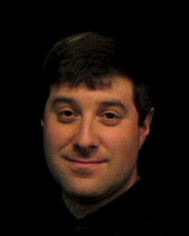 Jeff Kleinman is a literary agent, intellectual property attorney, and founding partner of Folio Literary Management, LLC, a New York literary agency which works with all of the major U.S. publishers (and, through subagents) with most international publishers. His authors include Garth Stein, Robert Hicks, Charles Shields, Bruce Watson, Neil White, Philip Gerard, and the late Dean Faulkner Wells. His interestes include nonfiction: especially narrative nonfiction with a historical bent, but also memoir, health, parenting, aging, nature, pets, how-to, nature, science, politics, military, espionage, equestrian, biography. His fiction interests include very well-written, character-driven novels; some suspense, thrillers; otherwise mainstream commercial and literary fiction.
Jeff Kleinman is a literary agent, intellectual property attorney, and founding partner of Folio Literary Management, LLC, a New York literary agency which works with all of the major U.S. publishers (and, through subagents) with most international publishers. His authors include Garth Stein, Robert Hicks, Charles Shields, Bruce Watson, Neil White, Philip Gerard, and the late Dean Faulkner Wells. His interestes include nonfiction: especially narrative nonfiction with a historical bent, but also memoir, health, parenting, aging, nature, pets, how-to, nature, science, politics, military, espionage, equestrian, biography. His fiction interests include very well-written, character-driven novels; some suspense, thrillers; otherwise mainstream commercial and literary fiction.
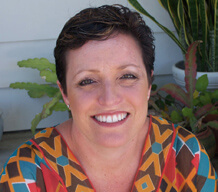 Jill Marr is an acquiring associate agent at the Sandra Dijkstra Literary Agency. She has a strong Internet and media background as well as more than ten years of publishing experience. Jill is interested in commercial fiction, with an emphasis on mysteries, thrillers and horror, women’s commercial fiction and historical fiction. She also is looking for non-fiction by authors who are getting their work published regularly and who have a realistic sense of the market and their audience in the areas of history, sports, politics, current events, self-help, inspirational, cookbooks, memoir (she especially loves travel and foodie memoirs), health & nutrition, pop culture, humor and music.
Jill Marr is an acquiring associate agent at the Sandra Dijkstra Literary Agency. She has a strong Internet and media background as well as more than ten years of publishing experience. Jill is interested in commercial fiction, with an emphasis on mysteries, thrillers and horror, women’s commercial fiction and historical fiction. She also is looking for non-fiction by authors who are getting their work published regularly and who have a realistic sense of the market and their audience in the areas of history, sports, politics, current events, self-help, inspirational, cookbooks, memoir (she especially loves travel and foodie memoirs), health & nutrition, pop culture, humor and music.
 Christen Thompson is the Commissioning Editor for Louisiana, Texas, Mississippi, and Arkansas for The History Press, a publisher of non-fiction regional and local history. She is a graduate of the Publishing Institute at the University of Denver and received her Bachelor of Arts in English Literature and Creative Writing from Agnes Scott College. As an editor, Ms. Thompson seeks to publish stories, to paraphrase Toni Morrison, from outside of the center. Anything with passion, voice, integrity, and that seeks to inform the world we live in–whether that world be a former boom town or a downtown neighborhood.
Christen Thompson is the Commissioning Editor for Louisiana, Texas, Mississippi, and Arkansas for The History Press, a publisher of non-fiction regional and local history. She is a graduate of the Publishing Institute at the University of Denver and received her Bachelor of Arts in English Literature and Creative Writing from Agnes Scott College. As an editor, Ms. Thompson seeks to publish stories, to paraphrase Toni Morrison, from outside of the center. Anything with passion, voice, integrity, and that seeks to inform the world we live in–whether that world be a former boom town or a downtown neighborhood.

Interesting that the participants supporting the hiring of agents…are agents.
True that! What we found interesting is that these same agents and editors years ago never worked very hard to sell themselves – just the opposite – and now we’re seeing a “kinder, gentler” tribe extolling the virtues of their industry. Definitely a change from the “only game in town” days…